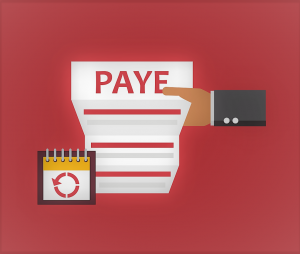Changes to how you process PAYE
Feb 19, 2019

If you are in business and employ people, you need to know about PAYE. PAYE is ‘pay as you earn’ and effectively is the income tax that employers pay to the government on behalf of their employees. As an employer, you are required to deduct PAYE from your employees’ salary or wages and pay it to Inland Revenue. When you register with Inland Revenue as an employer, your registration for PAYE is part of that.
Is it only PAYE that’s deducted when I do the wages?
| PAYE | Student Loan Repayments | KiwiSaver/Superannuation |
| ACC | Child Support | ESCT |
PAYE includes income tax and ACC earners’ levy.
Depending on each employee’s situation, you may also deduct child support and / or student loan repayments. Occasionally the IRD may notify you of additional deductions they require you to make.
If the employee has KiwiSaver, you will need to deduct their KiwiSaver contributions at the proper rate. You must also contribute a minimum of 3% of your employee’s gross salary or wages to their KiwiSaver fund.
You are liable for ESCT (employer’s superannuation contribution tax) for all employer contributions paid to an employee’s KiwiSaver or a superannuation fund, and you must pay any ESCT to Inland Revenue by the due date. The exception to this is if you and your employee agree to treat some or all of the employer contribution as salary or wages under the PAYE rules. If this is the case, you deduct PAYE from the amount of employer contribution.
What do I need to know to make deductions?
You need to know your employees’ tax codes. Generally you should ask all new employees to give you a completed tax code declaration (IR330 form) when they start work with you. If their situation changes they should give you an updated IR330 form. You must keep all completed IR330s for seven years after the last wages payment to the employee.
There are special tax codes, for example where the employee has a student loan and presents a Student loan special deduction rate certificate or a Student loan repayment deduction exemption certificate. Companies or contractors carrying out contracts in the agricultural, horticultural or viticultural industries may hold a Special tax code certificate. They should provide this to you. If they do, follow the instructions on the certificate, as these override the standard rates.
How do I file PAYE?
As of 1 April 2019, Payday filing as opposed to monthly PAYE filing will be mandatory for all employers. It is important to ensure you are comfortable with this new process before the changeover is made.
You will continue to make payments to Inland Revenue as you do now. Payments can be made electronically through your bank, by cheque or at most branches of Westpac.
| Current PAYE filing | Payday filing of PAYE |
| File IR348 (employer monthly schedule) each month | File employment information within two working days of each payday |
| File IR345 (employer deductions) on the 20th of each month | No longer need to file IR345 (employer deductions) |
| Pay Inland Revenue either once a month or twice a month (if large employer) | Pay Inland Revenue as you do now |
| File additional details about new and departing employees. |


